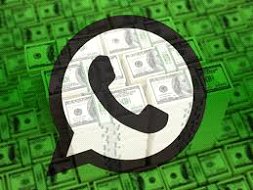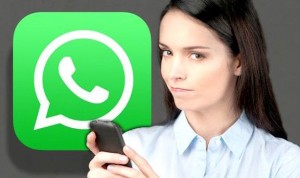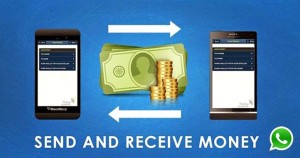When Facebook paid $19 billion in stock and cash for WhatsApp Inc. in February 2014, many people were confused. After all, it was very hard to see exactly how the messaging service made money.
After all, Forbes estimated that WhatsApp only generated $20 million in its last year of operation as an independent company. Yet Mark Zuckerberg was willing to shell out nearly $20 billion for the company.
 To make matters worse, the social messaging service famously refuses to tap one of the most popular and lucrative streams of cash online, namely advertising. WhatsApp founders Brian Acton and Jan Koum famously hate advertising and even wrote blog posts attacking the practice.
To make matters worse, the social messaging service famously refuses to tap one of the most popular and lucrative streams of cash online, namely advertising. WhatsApp founders Brian Acton and Jan Koum famously hate advertising and even wrote blog posts attacking the practice.
Making $700 Million $1 at a Time
Actually, the way WhatsApp makes money is fairly simple. WhatsApp generates revenue the old fashioned way, by selling a product for a low price. It employs a strategy called discounting—the same business plan that Walmart used to become the world’s largest retailer.
WhatsApp makes its money by selling its app for 99¢ to $1 a download through venues like the App Store, Google Play and the Windows Store and another $1 a year for a subscription, Investopedia reported. Since the service supposedly had around 700 million active users in April 2015, that could generate around $700 million a year in revenue.
 To make even more money, WhatsApp was adding around one million users a day, which adds up to around $1 million a day in revenue.
To make even more money, WhatsApp was adding around one million users a day, which adds up to around $1 million a day in revenue.
That would add up to $365 million in additional revenue, which could bring WhatsApp revenue up to $1 billion by next year.
Data Could Be Worth More Than Money
Now for the truly interesting part: The real value in WhatsApp is in the behavioral data that it collects about its users. Since WhatsApp users send an estimated 30 billion messages a day, there’s a lot of data to sift through.
The data could help Facebook analyze all the connections that users have and how they share data, analyst Mark Little told Forbes. Such analysis could give Facebook indication of what sort of products users might be interested in so it could tailor ads specifically designed to appeal to them. For example, users that send a lot of messages from McDonald’s might start seeing advertisements for hamburgers when they log on to Facebook.
All the additional WhatsApp users also increase the number of potential viewers for advertising sold through Facebook. More sharing also creates more opportunities for advertising, which means more potential revenue for Facebook.
A potential use for WhatsApp by Facebook is value creation, Little said. In that scenario, WhatsApp creates more value or opportunity for advertising. Facebook itself will package and host the advertising and sell it.
Are WhatsApp Users Now for Sale?
There’s also a strong possibility that Facebook could simply sell the data to others such as Google. Even limited data about individuals’ social media habits could potentially be worth a vast amount of money.
A person that purchased and regularly uses WhatsApp would also be more likely to utilize other app-based products and services such as Uber. That means companies like Uber could pay Facebook for the opportunity to put their services and products before WhatsApp users.
There are other kinds of marketing available too. A person that sends a lot of photographs over WhatsApp might presumably be interested in a new kind of camera phone. Somebody that sends YouTube videos to his friends might be interested in a streaming video subscription.
Doubling the Size of Facebook
Purchasing WhatsApp also allowed Mark Zuckerberg to effectively double the size of his social network. In December 2014 Facebook had 1.39 billion users, Investopedia writer Alison L. Deutsch noted. At the same time, WhatsApp reportedly had around 700 million users and was adding another one million a day, meaning it was on track to have a billion users.

By increasing the size of Facebook’s user base to two billion, Zuckerberg could greatly increase the amounts he charges for advertising. More importantly, Facebook could attract larger advertisers with deeper pockets, such as auto and technology companies, retailers and manufacturers of food products.
WhatsApp also has large numbers of users in larger, growing markets that Facebook has not been able to penetrate. This includes developing countries where most people rely on smartphones rather than computers to connect to the Internet. Facebook, which is a computer-based service, has had a hard time penetrating the developing markets.
There are some lucrative industries targeting the developing world, including peer-to-peer lenders like Lending Club and the massive payment services provider PayPal. PayPal just went public via an IPO and now owns the popular payment solution app Venmo, which allows people to send money via social messaging; Market Madhouse reported that Venmo users sent $700 million to each other in July, August and September of 2014.

One potential product that could be sold through WhatsApp or with WhatsApp would be a payment solution product similar to Venmo or Apple Pay. That would enable WhatsApp users to send money to each other, to receive money, and to pay bills. It might also enable people to lend money to each other on a peer-to-peer basis.
Owning WhatsApp could also help Facebook connect with younger people, who are less likely to utilize a computer-based service. It helps the company deal with the phenomenon of Facebook’s “death to teens” which was widely reported last year.
Growth Now Monetization Later
WhatsApp is also clearly a very good fit with Facebook’s classic business model, which is growth now and monetization later. Facebook first expands its services and capabilities; then it figures out how to make money from them.
For example, the social network and the ever popular Facebook pages were up and running for years before Facebook was able to start generating revenue from them via advertising. New streams of revenue from products like payment solutions might not be available for years.
That means WhatsApp does not necessarily need to be making money to be valuable to Facebook. The vast numbers of users it has attracted could be the real value to this company.
